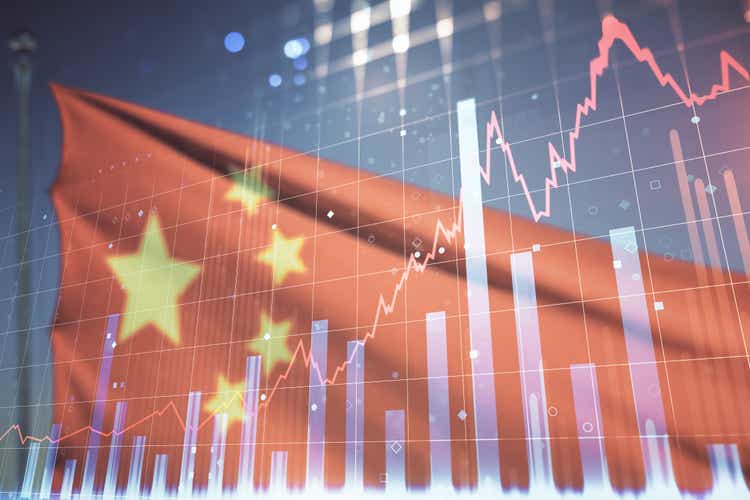Igor Kutyaev
The Franklin Templeton Emerging Markets Equity team offers some highlights of China’s 20th Congress and investment considerations.
Key takeaways
- China’s President Xi Jinping kicked off his third leadership term, introducing a refreshed Politburo Standing Committee with his loyalists.
- Continuity in policy direction is likely to remain, with quality growth a priority – promotion of common prosperity, housing for all, gradual decarbonization and improvement of public systems.
- Other policy initiatives cover China’s opening up and international cooperation, national security (including self-sufficiency in key areas e.g., food, energy, technology) and reunification.
- There was no emphasis on China’s zero-COVID policy, with no further clarity on reopening.
- The party reaffirmed the role of the private sector, which remains critical to the economy alongside state-owned businesses.
Following the 20th National Congress of the Chinese Communist Party in October, a selloff in Chinese equities ensued due to concerns that economic growth may take a backseat to common prosperity and security as top priority, continued macro challenges such as China’s zero-COVID policy and resolution of real estate challenges, and geopolitical considerations.
However, observers have noted that political unity can help achieve better policy coordination and implementation. This may translate into faster execution of policy objectives.
In addition, China’s implied long-term growth objective remains intact (with reference to becoming a “moderately prosperous” society, implying a reasonable growth rate to achieve inclusive and quality growth rather than focusing on gross domestic product growth targets).
Broad investment implications
Despite the significant turmoil in the Chinese market, we continue to focus on identifying bottom-up investment opportunities based on the criteria of quality, sustainability and growth over a medium- to long-term investment horizon. And despite the significant challenges present in the Chinese economy, our on-the-ground presence and bottom-up, long-term oriented approach enables us to continue to identify opportunities in the Hong Kong and Chinese markets.
As fundamental, high-conviction investors in structurally competitive and well-placed businesses, we tend to hold our positions for the long term but remain nimble to flex portfolio positioning incorporating near-term factors.
Our allocations in China have been positioned to align with strategic priorities such as common prosperity, self-sufficiency in key strategic areas and decarbonization. By way of example, we have added to businesses aligned with strategic priorities for the Chinese Communist Party in areas such as renewable energy and the electric-vehicle supply chain over the last 12 to 18 months.
Our stock selection is based on a bottom-up view and focus on the sustainable earnings power of individual companies. While we understand that companies’ competitive advantages can be temporarily mispriced, in the long term, we believe that stock prices are primarily driven by the ability of companies to sustain profitability and earnings power.
While more light will be shed on the economic policies for China in 2023 later in the year as well as at the National People’s Congress (NPC) meeting in March 2023, our outlook for China remains constructive.
While our base-case scenario has been and remains a more formal reopening after the Two Sessions of the NPC (i.e., second quarter 2023), the rapidly growing middle class still points to rising consumption and premiumization themes that will likely drive growth for higher-end goods and services over the long term.
China’s long-term aim to become technologically independent also represents a huge growth opportunity, leading to domestic substitution with strategic benefits.
What are the risks?
All investments involve risks, including possible loss of principal. The value of investments can go down as well as up, and investors may not get back the full amount invested. Stock prices fluctuate, sometimes rapidly and dramatically, due to factors affecting individual companies, particular industries or sectors, or general market conditions. Special risks are associated with investing in foreign securities, including risks associated with political and economic developments, trading practices, availability of information, limited markets and currency exchange rate fluctuations and policies; investments in emerging markets involve heightened risks related to the same factors. Investments in fast-growing industries like the technology and health care sectors (which have historically been volatile) could result in increased price fluctuation, especially over the short term, due to the rapid pace of product change and development and changes in government regulation of companies emphasizing scientific or technological advancement or regulatory approval for new drugs and medical instruments. China may be subject to considerable degrees of economic, political and social instability. Investments in securities of Chinese issuers involve risks that are specific to China, including certain legal, regulatory, political and economic risks.
Editor’s Note: The summary bullets for this article were chosen by Seeking Alpha editors.


Be the first to comment